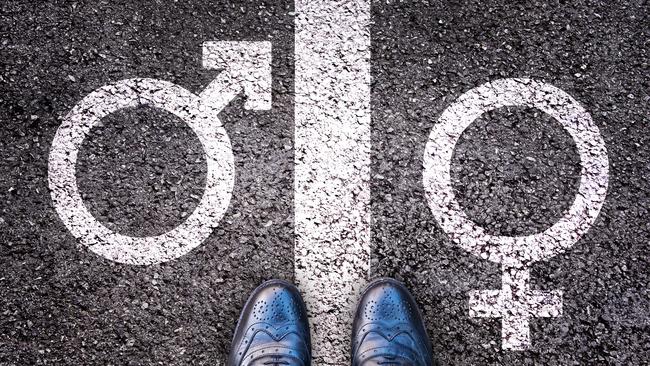Regretful ‘detransitioners’ on rise
Regretful “detransitioners” ignored by the upbeat narrative of gender change are entitled to medical help, says an expert.

Regretful “detransitioners” ignored by the upbeat narrative of gender change are entitled to medical help and research into what they went through, says Jacky Hewitt, a leading expert on trans youth health.
Dr Hewitt, a paediatric endocrinologist and sex researcher, is the first within Australia’s small circle of specialist gender clinicians to take a public stand at odds with the trans lobby tendency to dismiss detransitioners.
There has been a global spike in teenagers, chiefly girls, given hormone treatment and surgery to cure their “gender dysphoria” or distress about their biological sex, with some deciding as young adults it was a mistake.
Canadian psychologist Ken Zucker, a world authority on dysphoria, said it was an “urgent clinical issue” to find out whether today’s surge of teenagers were like previous patients.
In past studies, about 60-80 per cent of children diagnosed with dysphoria as young as three or four grew out of it, without need of medical treatment that can make them infertile and permanently dependent on doctors.
Now, Dr Zucker said, there were more patients arriving at gender clinics with the de facto treatment of “social transition” — new names and pronouns, living as the opposite sex — already under way.
“Parents certainly should be informed that if you go down this pathway (of early social transition) … the odds are much higher your kid is going to require biomedical treatment, whether it’s hormonal or surgery,” he said.
Australia’s biggest “child-led affirmation” gender clinic at the Royal Children’s Hospital in Melbourne promotes medical intervention as sometimes vital to reduce suicide risk, claims children as young as two or three are experts on their trans identity, and insists less than 1 per cent of those who change gender regret it. RCH ignored a request for comment.
Dr Hewitt, a Monash University academic and lead author of a 2012 study on 39 children and adolescents given hormone treatment at RCH between 2003-11, said: “There is a need for both research and medical services for people who previously had gender dysphoria and hormonal/surgical intervention, who are now detransitioning.
“This (need) is regardless of whether they represent a tiny minority, or a larger group than previously thought.”
She declined to elaborate on her comments, tweeted in reply to a report of London’s Tavistock youth gender clinic being urged to take seriously the issue of detransitioners.
Dr Hewitt’s 2012 study is cited in the trans health policy of the Royal Australian and New Zealand College of Psychiatrists, which has quietly removed from this policy its past reliance on the RCH’s controversial 2018 treatment standards.
The Hewitt-led study says: “Current evidence suggests that when a strict assessment and clinical protocol is followed, hormone treatment to suspend the development of puberty is associated with a good outcome and a low rate of regret.
“(But) concerns exist regarding the long-term outcome following hormone treatment ... Evidence from larger international cohorts suggests behavioural problems and depression improve in the period following pubertal suppression, but anxiety, anger, and gender dysphoria may remain unchanged.
“The long-term psychological and health outcomes of cross-sex hormone treatment are unknown, as is the rate of ‘regret’ with reversal of gender identity.”
Sceptics of the confident affirmation model say previous studies of regret define it narrowly, do not capture the recent group of “rapid onset” teenagers, and fail to account for the fact that detransitioners often have no desire to report back to the gender clinics that encouraged their mistaken belief they could change sex.
A rise in detransitioners has been predicted, as more young adults emerge with medical complications and untreated psychological issues. Many reportedly present at gender clinics with pre-existing mental health problems, autism spectrum disorder, awkward same-sex attraction, sexual abuse or family trauma.
A reddit detrans forum has 5,600 members; it is believed about 40 per cent are detransitioners.
In a recent letter to the Medical Journal of Australia, RCH clinic director Michelle Telfer and her team dismissed media reports of detransitioners, claiming most were not “true” cases and blaming “outside pressures” from family and religion.
The 2018 RCH treatment guidelines do not mention the detransitioner phenomenon.
University of Newcastle psychologist Rachel Heath, co-author of a new book that promises a “state-of-the-art” guide to transgender health, said she put the share of detransitioners at “no more than 1 per cent.
“And certainly no one from the best-run clinic in the world at Royal Melbourne Children’s Hospital. These (detransitioner) campaigns by ignorant people are designed to eliminate all trans people.”


